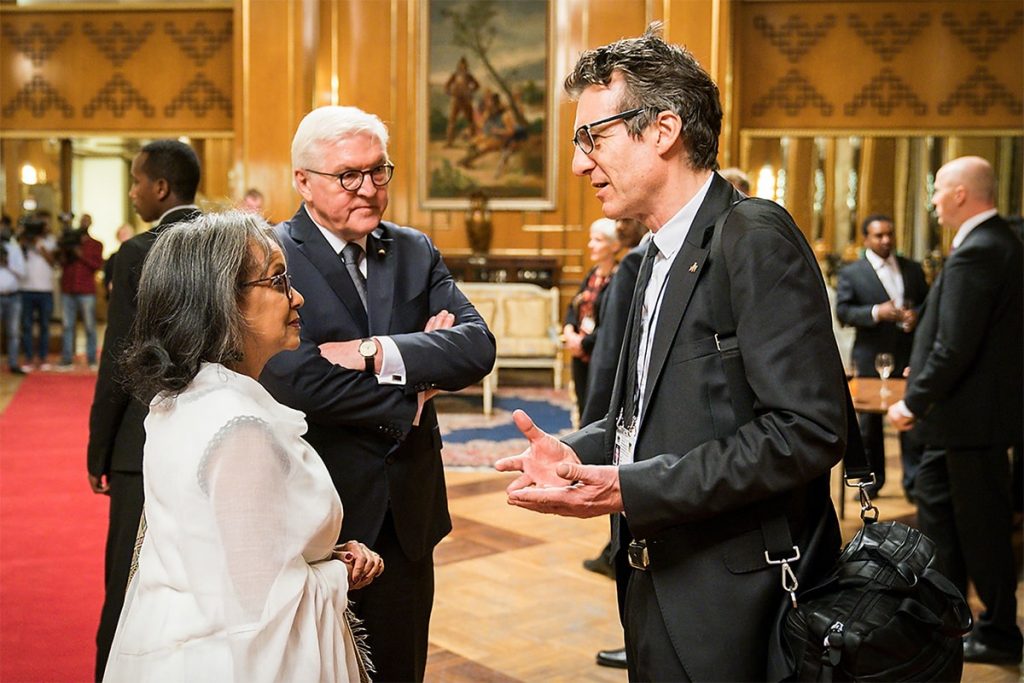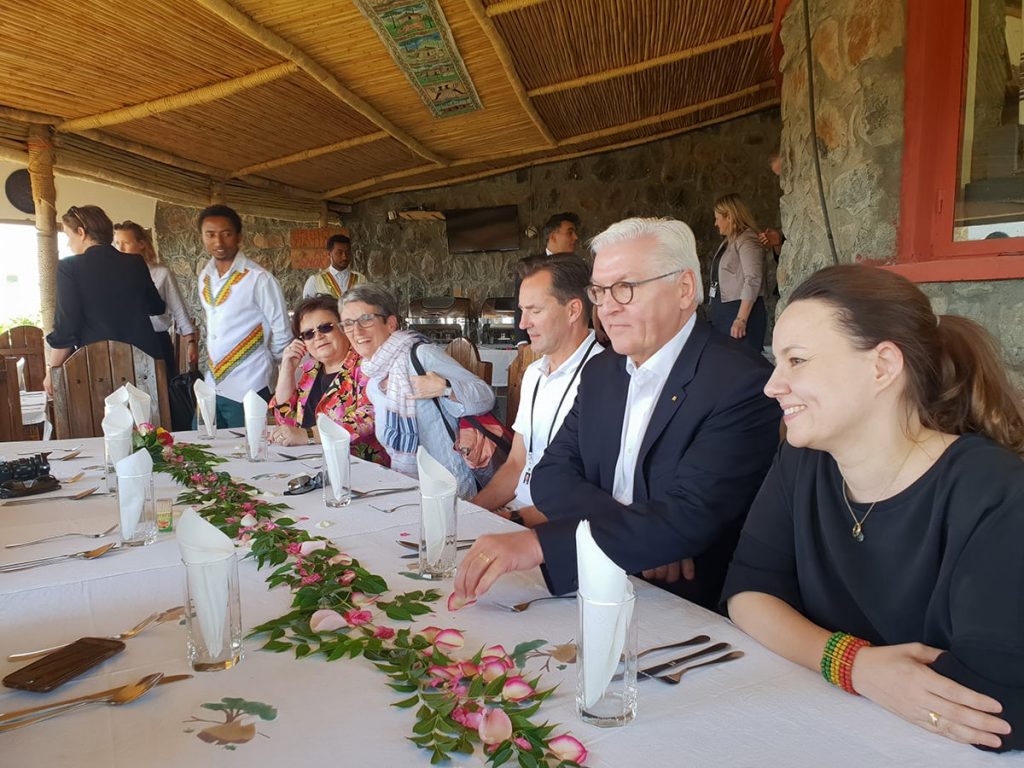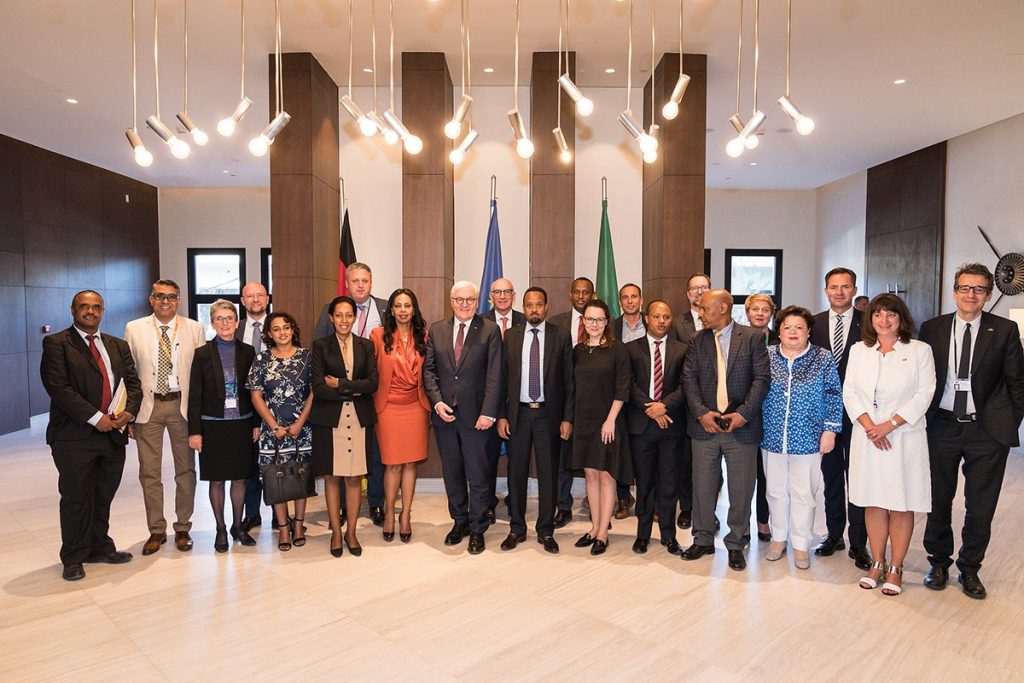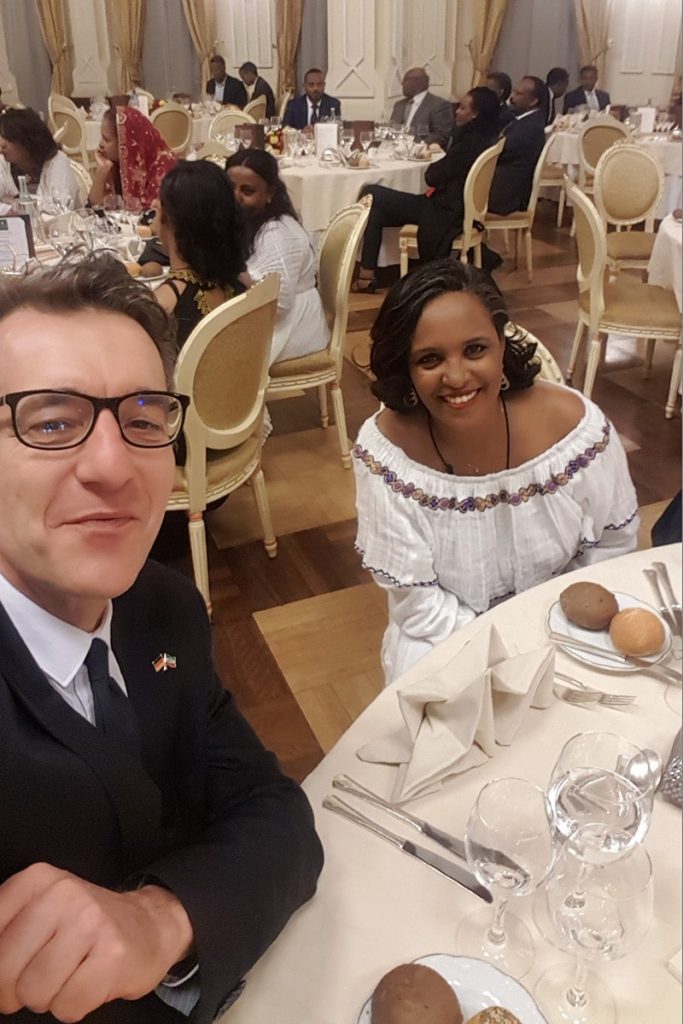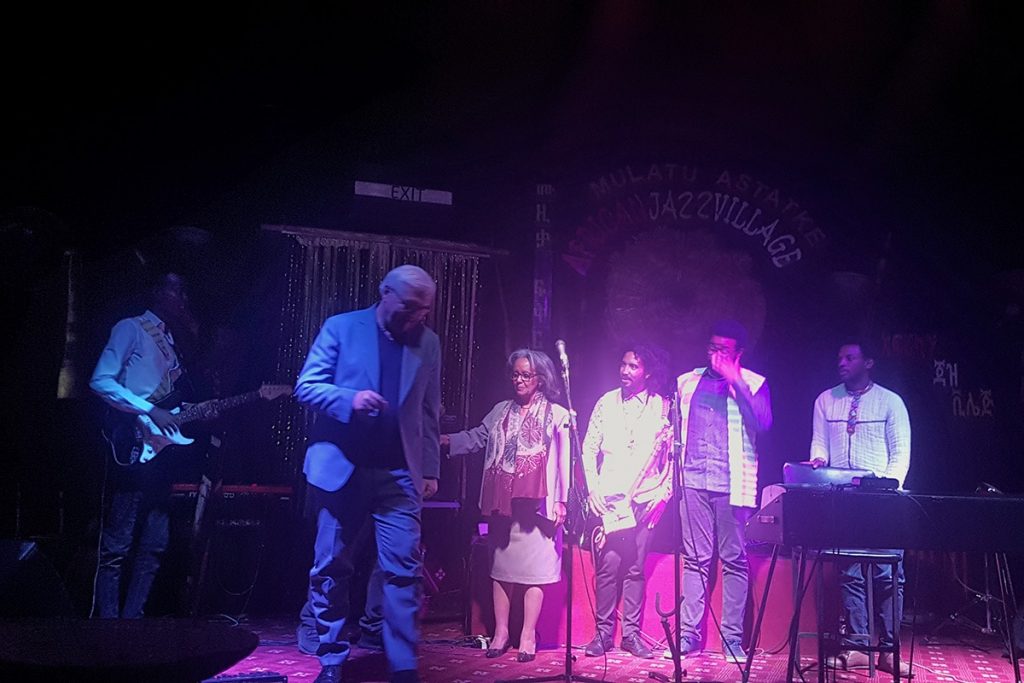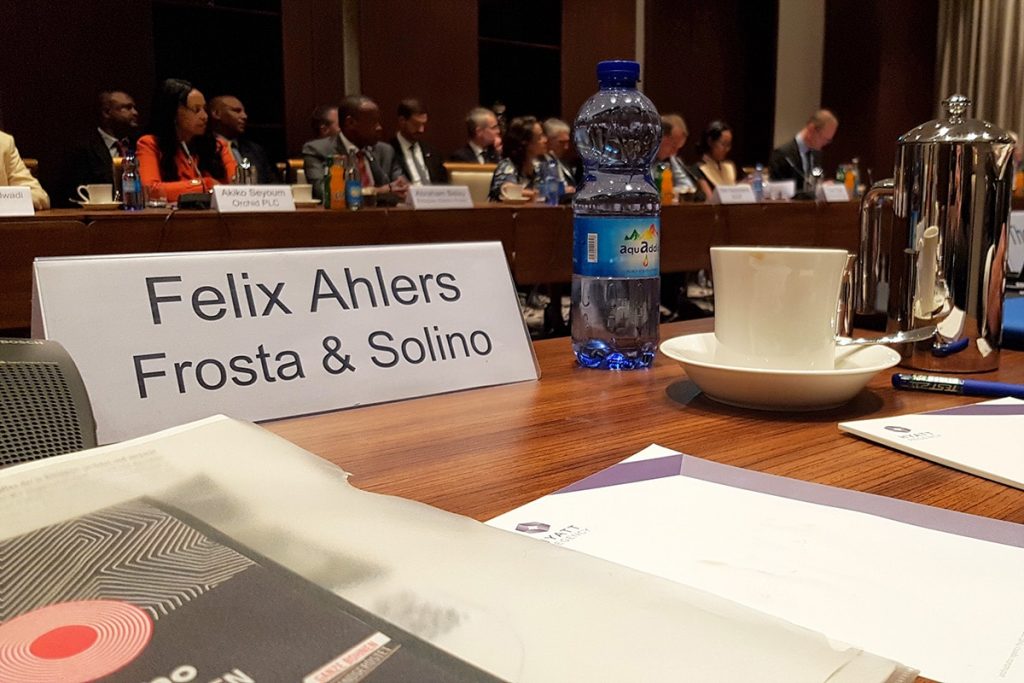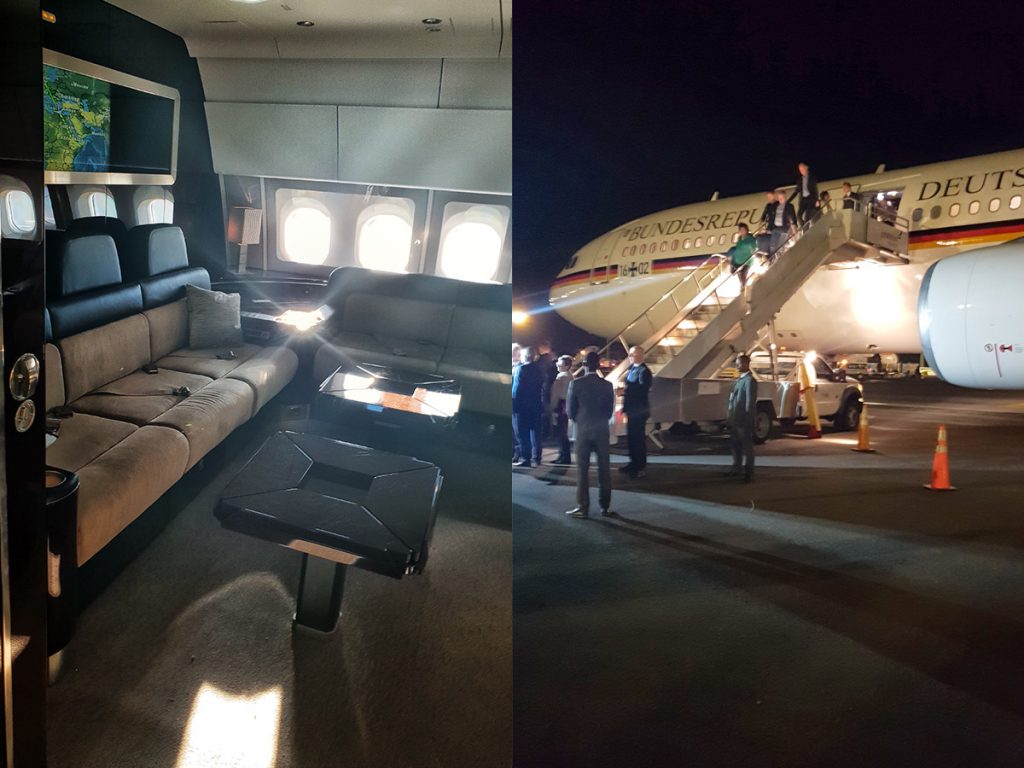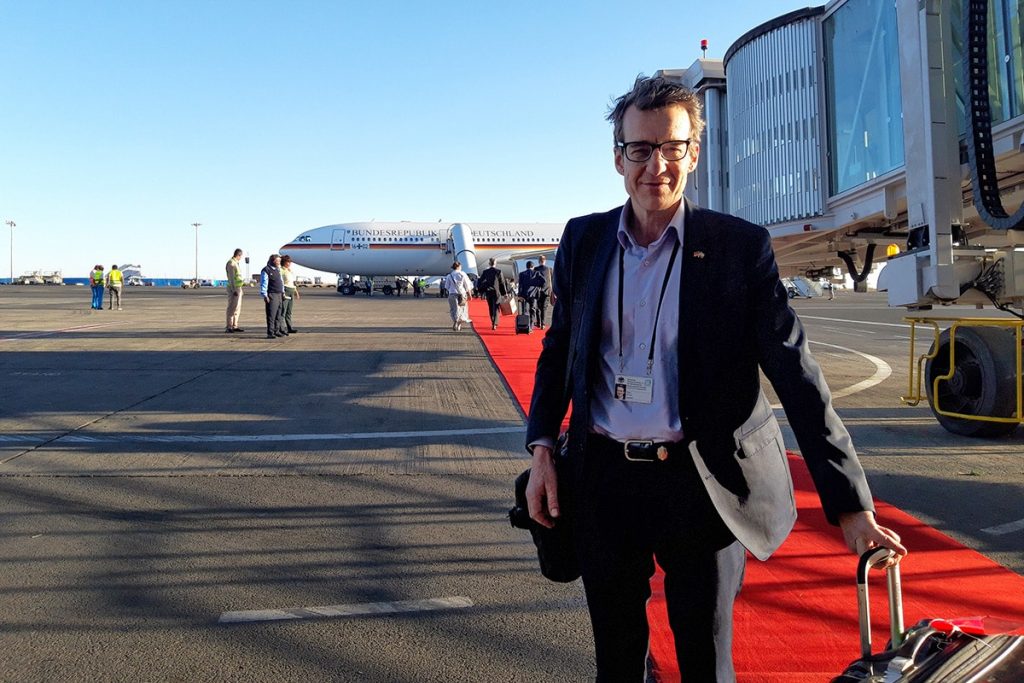Warten und Kaffee trinken hieß es am Ende der 3-tägigen Reise nach Addis Abeba mit Frank.W. Steinmeier: die Präsidentenmaschine war defekt. Wir durften also noch etwas länger in der Sonne im Hotel sitzen. Ich war froh, dass Steinmeier uns eingeladen hat ihn zu begleiten. Das Programm war intensiv und interessant: dem neuen Premierminister Dr Aby habe ich einen Solino Espresso geschenkt und er kannte unser Projekt bereits.
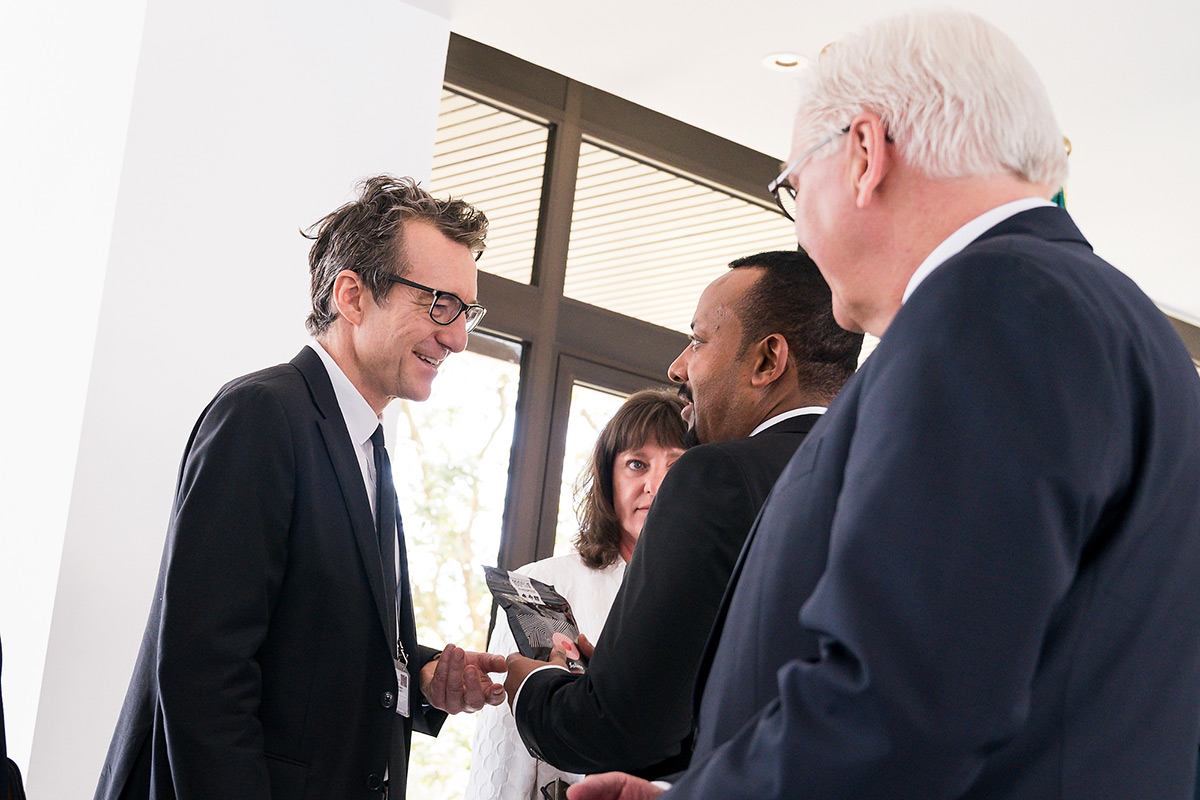
Besonders interessant war das Gespräch mit dem Energieminister. Er versprach die Stromausfälle in der Gegend unserer Rösterei zu reduzieren. Diese Ausfälle führen immer zu Produktionsunterbrechungen und Verspätungen. In Äthiopien arbeiten 30 Millionen Menschen als Kaffeebauern und verdienen bei den aktuell niedrigen Weltmarktpreisen nicht mehr als 30-40€ im Monat. Auch marginale Aufschläge von 10 – 20% bei “Fairtrade” Programmen lösen das Problem dieser Menschen nicht. Insofern waren alle Gesprächsteilnehmer sehr an unserem Ansatz interessiert. Kaffee in Äthiopien rösten und dadurch viele besser bezahlte Jobs schaffen.
Und weil Kaffee kulturell und wirtschaftlich eine so große Bedeutung für Äthiopien hat, ist unser Ansatz für mehr Wertschöpfumg im Kaffeesektor einfach zu erklären.
Die Äthiopier wollten natürlich auch wissen, welche Erfahrugen wir im Land gemacht haben und wie unser Projekt noch schneller wachsen könnte. Dazu habe ich hier auf Englisch ein paar Punkte geschrieben (damit die Gesprächspartner aus Addis Abeba mitlesen können):
“Ethiopia is a very nice and safe country. People have a similar humour as we in Europe and it is always a pleasure to go there. In addition, it has a longest culture of coffee in the world!
Our biggest challenge was to explain to our roasting partners in Ethiopia that a product “made for Europe” requires different quality standards compared to Ethiopian standards. Another difficulty was to convince the local authorities that roasted coffee needs faster document processing, because time and freshness is critical.
Today I see that Ethiopians are more enthusiastic and optimistic about the future. This already helps a lot. Many women are working in our coffee production and I am happy that the government has nominated very qualified women: the new Ethiopian president and also the new Embassador in Berlin.
Ethiopia wants to be a middle income country in 2025. The key element to reach this goal is processing and value addition. 60-80% more value is made during the roasting and packing of coffee. Especially now, when raw coffee prices are at an historical low level, it is critical that Ethiopia creates better paid and stable processing jobs which do not depend on the fluctuation of the world coffee prices.
The Ethiopian government shall in my opinion: 1. Allow people to own land. This will increase local and foreign investment because it gives security. 2. Improve the logistics, especially for Im- and Exports. The transport time between Addis Abeba and Djibouti is too long. And it is too expensive. 3. Reduce unnessary bureaucracy and speed-up the administrative processes.
The German government could support by buying more “made in Africa” products and continue technical support projects. Why should the German government not drink our coffee in their offices?
Will our Solino project succeed in the long run? It all depends on quality. If Ethiopians manage to deliver excellent quality, they have a good chance, even in a very competitive European market. The image of Ethiopia is very positive as it is well known as the origin of coffee and humanity! I believe with Solino Coffee we can support this positive image of Ethiopia and hopefully we will process much more coffee here in Ethiopia for Europe.”
Steinmeier hat uns ebenfalls sehr geholfen und uns besonders auch der neuen Präsidentin und dem Premierminister vorgestellt! Dafür auch auf diesem Weg herzlichen Dank und ich würde mich freuen ihn mal wieder zu treffen.
Hier noch ein Artikel der zu der Reise erschienen ist und auch über Solino berichtet.

